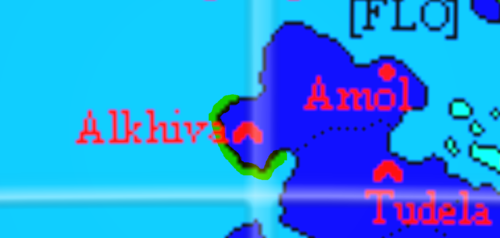NBC Newsfeed/1695


Main Page |
1692 AN ▪
1693 AN ▪
1694 AN ▪
1695 AN ▪
1696 AN ▪
1697 AN ▪
1698 AN ▪
1699 AN ▪
1700 AN ▪
1701 AN ▪
1702 AN ▪
1703 AN ▪
1704 AN ▪
1705 AN ▪
1706 AN
1707 AN ▪
1708 AN ▪
1709 AN ▪
1710 AN ▪
1711 AN ▪
1712 AN ▪
1713 AN ▪
1714 AN ▪
1715 AN ▪
1716 AN ▪
1717 AN ▪
1718 AN ▪
1719 AN ▪
1720 AN ▪
1721 AN ▪
1722 AN ▪
1723 AN
1724 AN ▪
1725 AN ▪
1726 AN ▪
1727 AN ▪
1728 AN ▪
1729 AN ▪
1730 AN ▪
1731 AN ▪
1732 AN ▪
1733 AN ▪
1734 AN ▪
1735 AN ▪
1736 AN ▪
1737 AN ▪
1738 AN ▪
1739 AN ▪
1740 AN
1741 AN ▪
1742 AN ▪
1743 AN ▪
1744 AN ▪
1745 AN ▪
1746 AN ▪
1747 AN ▪
1748 AN ▪
1749 AN ▪
1750 AN ▪
1751 AN ▪
1752 AN ▪
1753 AN ▪
1754 AN ▪
| All NBC Newsfeed Pages
XIII
ALDURIA’S BEACHES ON PATH TO RECOVER FROM ALKHIVAN OIL SPILL
Not yet clear how much oil remains in water, sediment, and seabed yet
ALKHIVA, ALDURIA -- Nouvelle Alexandrie’s Department of Energy and Environment announced today that they have advised the regional government of Alduria to lift the temporary state of emergency due to a massive oil spill of the Alkhivan coast last year.
Intensive clean-up efforts have restored 96 percent of the beaches and waters along the affected area to usable condition, the Department said in a statement.
“After an especially intense last 10 months, we are moving to the next stage and continuing to support coastal authorities in their work to clean and remove any further tar or pollution,” said Department of Energy and Environment Spokesperson Karla Gertrude.
As of time of press, over 650 tons of mixed tar have been removed from the beaches and waters along the affected area. (Area highlighted in yellow on attached map.)
The Department of Energy and Environment also said it would work with local authorities to set up diving teams to locate masses of tar underwater, as well as look into the possibility of conducting an underwater cleaning campaign based on the results of that effort.
The aftermath of the oil spill is difficult to predict, however, as it is not yet clear how much remains in the water, sediment and sea-bed. “We expect in the future to find some pollution in sediments and in the deep sea,” Gertrude predicted of the upcoming sea dives to survey the ocean floor. "We will continue to provide assistance and boost funding for additional research and new technologies." The expedition is expected to take place in the coming month. Scientists and officials will “collect sediments and look for chemical signals of crude oil and see if bacteria were affected by the pollution.”

| ||||||||||